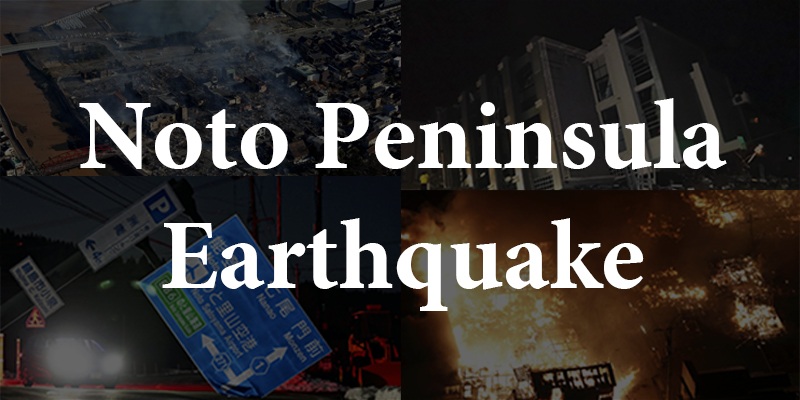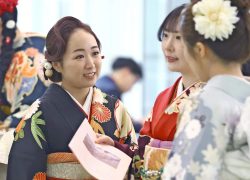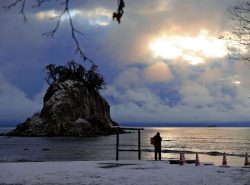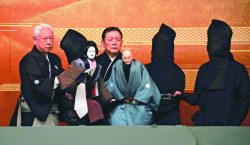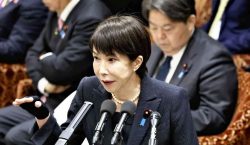Public Broadcaster NHK Strongly Called for Viewers to Evacuate During Quake; Aim Was to Break ‘Normalcy Bias’
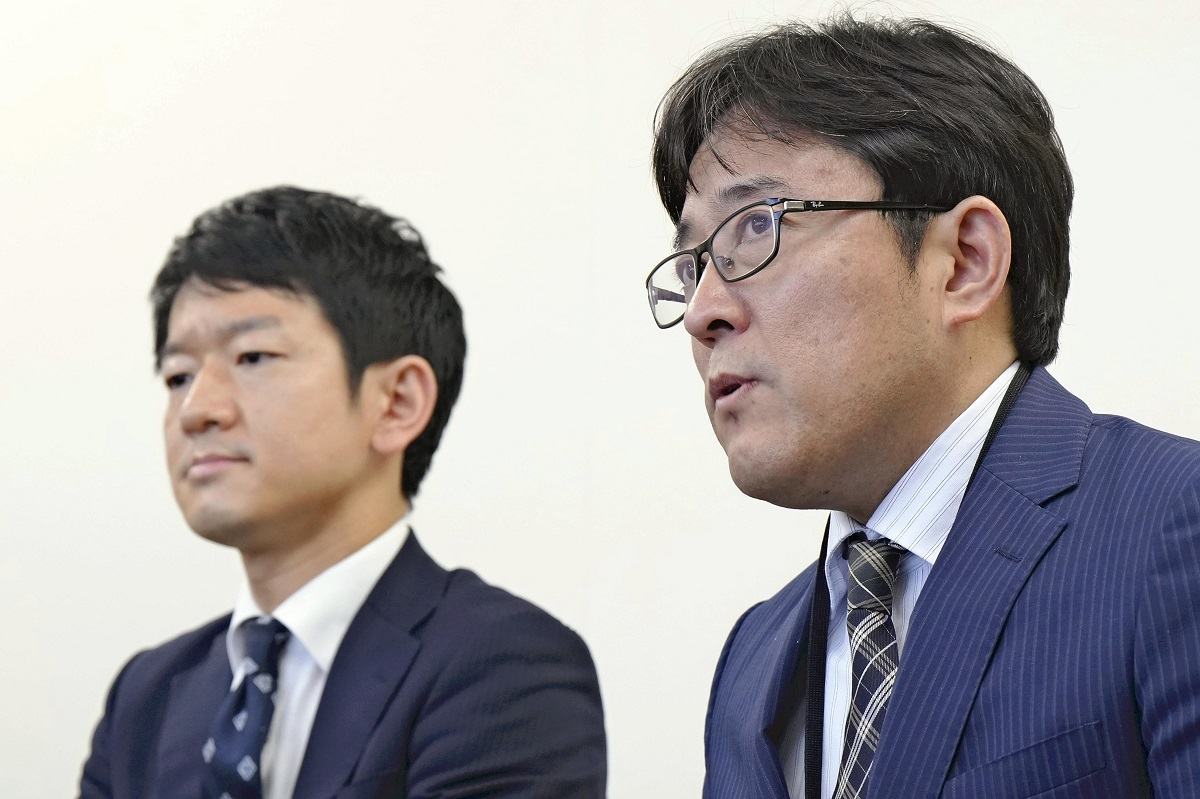
NHK’s Keiichi Tokunaga, right, and Takeshi Takigawa speak about the broadcaster’s method of calling for viewers to evacuate, during an interview with The Yomiuri Shimbun in Shibuya Ward, Tokyo, on Friday.
2:00 JST, January 18, 2024
Anchorpersons at public broadcaster NHK used a serious tone of voice to strongly urge viewers to evacuate when reporting on a tsunami warning issued immediately after the Noto Peninsula Earthquake occurred on New Year’s Day, such as by saying, “Go now to the highest place possible!”
Lessons learned from the 2011 Great East Japan Earthquake were the reason for making such emphatic statements. NHK’s intention was to break the “normalcy bias” — people’s tendency to minimize warnings of danger by thinking that nothing serious will happen to them — with the aim of saving lives.
When a strong tremor was felt shortly after 4 p.m. on Jan. 1 in Ishikawa Prefecture’s Noto region, NHK interrupted its regular programming and switched to earthquake-related news. Soon after, a major tsunami warning was issued.
“Remember the tsunami that occurred because of the Great East Japan Earthquake!” and “Your lives are the most important thing!,” the anchorpersons said very loudly, repeatedly calling for people to evacuate.
After the 2011 earthquake, NHK has been working from the perspective of how the broadcaster can take action to save people’s lives in times of disaster.
In 2011, NHK anchorpersons in live broadcasts called for people to seek safe haven from the tsunami. However, many people did not escape and died. It is said that NHK staff members involved in the coverage felt they could have done more.
While discussing with experts what kind of call to action should be made to reach viewers, normalcy bias was an issue they focused on. People failed to evacuate in many cases in 2011 because they thought they would not be affected by the tsunami, thus exhibiting normalcy bias.
The broadcaster concluded that calling out loudly and using an imperative tone of voice — such as by saying “Run away!” in a commanding manner — might resolve the issue. NHK thought that having anchorpersons use a strong tone of voice, as opposed to the usual calm voice, could give viewers a sense of urgency that something unusual was happening and compel them to evacuate.
NHK reviewed its disaster announcement manual and conducted related drills on a regular basis.
When the major tsunami warning was issued for the first time since the Great East Japan Earthquake, NHK implemented its policy during broadcasts. According to NHK’s public relations department, the broadcaster received positive feedback from viewers such as that it “helped us feel a sense of urgency” and “triggered evacuations.” NHK also received different opinions, such as “anchorpersons should call out to viewers in a calmer voice.”
“We cannot instantly evaluate our reporting this time because damage caused by the tsunami due to the Noto Peninsula Earthquake is becoming clearer now,” said Keiichi Tokunaga, NHK’s anchorperson in charge of the broadcaster’s news anchorpersons group. However, he added, “We wanted as many lives as possible to be saved. The anchorpersons did their best to do what they had been building up to for a long time.”
Takeshi Takigawa, who is an anchorperson on the evening news program “News 7,” said, “I know there are a certain number of people who are shocked [by the anchorpersons’ strong and commanding tone]. We prioritized the protection of lives and made this decision.”
Takigawa added, “We would like to examine better ways of reporting news [while a major disaster is occurring] while sincerely listening to various opinions.”
Top Articles in Society
-

Producer Behind Pop Group XG Arrested for Cocaine Possession
-

Man Infected with Measles Reportedly Dined at Restaurant in Tokyo Station
-

Man Infected with Measles May Have Come in Contact with Many People in Tokyo, Went to Store, Restaurant Around When Symptoms Emerged
-

Woman with Measles Visited Hospital in Tokyo Multiple Times Before Being Diagnosed with Disease
-

Bus Carrying 40 Passengers Catches Fire on Chuo Expressway; All Evacuate Safely
JN ACCESS RANKING
-

Producer Behind Pop Group XG Arrested for Cocaine Possession
-

Japan PM Takaichi’s Cabinet Resigns en Masse
-

Man Infected with Measles Reportedly Dined at Restaurant in Tokyo Station
-

Israeli Ambassador to Japan Speaks about Japan’s Role in the Reconstruction of Gaza
-

Videos Plagiarized, Reposted with False Subtitles Claiming ‘Ryukyu Belongs to China’; Anti-China False Information Also Posted in Japan
